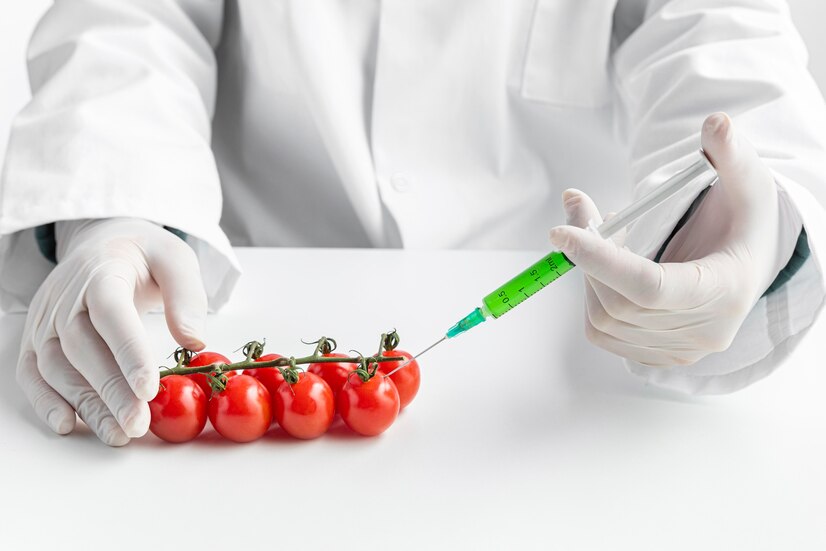General
How To Stay Conscious About Food Safety
by Author
-
Monday, December 18, 2023
39 Views
Practising food safety is crucial for everyone, not just health experts. It ensures that you and your family stay healthy when eating home-cooked meals. Our busy lives make it easy to forget food safety, but staying conscious can improve your overall lifestyle.
Wash your hands thoroughly before preparing and eating food.
Food hygiene is of utmost importance, and as such, it should be taken very seriously. One of the most basic yet effective ways of ensuring hygiene in our food is by properly washing our hands before preparing and eating food. Not only is it a common sense approach, but it is also backed by research. The food hygiene level 3 course emphasises this as crucial to maintaining a healthy food environment. By washing our hands correctly, we can prevent the spread of bacteria, viruses, and dirt from our hands onto the food. This helps to protect our bodies against illnesses and diseases that may arise from poor hygiene practices. Therefore, we must take every step necessary to protect ourselves and our loved ones by prioritising hand washing before handling food.
Check the expiration date of food items before buying them.
Have you ever bought something at the grocery store only to realise it has expired? It’s never a good feeling, but it’s easily avoidable. One of the easiest ways to ensure your food is fresh is to check the expiration date before buying it. It might seem like a small detail, but reading the label can save you from getting sick from spoiled food and some money in the long run. So, the next time you’re at the store, take a second to glance at the expiration date and make sure you’re getting the freshest food possible.
Store food at the right temperature to avoid spoilage.
We’ve all been there – you open your fridge to find that basket of strawberries you were looking forward to snacking on, only to discover they’ve started to mould. It’s a frustrating and wasteful experience nobody wants to deal with. Luckily, avoiding spoilt food is not rocket science. Storing your food at the right temperature can prolong its shelf life and allow you to enjoy fresh produce for longer. It’s important to know the optimal temperature for each type of food – for example, meats should be kept colder than fruits and vegetables. You can save money and reduce waste in the long run by taking a small amount of time to store your groceries properly.

Separate raw meat, poultry, and seafood from other foods
It’s no secret that proper food handling is crucial for keeping ourselves and our loved ones safe from harmful bacteria. Taking extra precautions regarding raw meat, poultry, and seafood is especially important. These foods can contain harmful bacteria like salmonella and E. coli, which can cause serious illness. To avoid cross-contamination, storing them separately from other foods in the grocery cart, refrigerator, and during preparation is best. Following this simple step, you’ll be on your way to a safe and delicious meal!
Clean surfaces with soap and water after handling raw foods
Keeping your kitchen clean and sanitary is crucial to avoid the spread of harmful bacteria. One important rule to remember is to always clean surfaces with soap and water after handling raw foods. This includes raw meats, poultry, fish, and eggs. These foods can contain dangerous pathogens that can cause food poisoning if ingested. Simply wiping down your countertops and cutting boards with soap and water after handling raw foods can greatly reduce the risk of contamination. So, take that extra step to ensure the safety of your food and your family’s health.
Cook food to the correct internal temperatures to kill bacteria.
Cooking food to the correct internal temperatures is crucial to ensure that any harmful bacteria are killed off. While it may seem tedious to monitor the temperature of your food as it cooks, taking the extra time and care to do so can greatly reduce the risk of foodborne illness. Different foods require different internal temperatures to be fully cooked and safe to consume. For example, poultry such as chicken or turkey should reach an internal temperature of 165°F while ground beef should reach 160°F. Utilising a food thermometer during the cooking process can ensure that your meals are delicious and safe for you and your loved ones to enjoy.
Refrigerate perishable items promptly after use or purchase.
We’ve all been there – you buy groceries to use them all, but then life happens, and you forget that half-eaten tub of sour cream in the back of your fridge. When it comes to perishable items, proper storage is essential to prevent them from going bad and potentially causing illness. Refrigeration is the easiest and most effective way to keep perishables fresh for as long as possible. Whether you’re storing leftovers or newly purchased groceries, put them in the fridge promptly after use or purchase. Don’t leave it to chance – take the time to store your food properly, and you’ll reap the benefits of delicious meals and healthy eating.

Conclusion
To keep ourselves and our families healthy, handling food safely is important. Practice regular handwashing, store food at low temperatures, separate raw and cooked foods, cook all foods thoroughly, and throw away expired items. Double-check that perishable items are refrigerated promptly after use or purchase. Remember these practices to ensure your family’s nourishment with the utmost safety.
![peeling-black-skin-eggplants_114579-12296[1]](https://yourstorieshub.com/wp-content/uploads/2023/12/peeling-black-skin-eggplants_114579-122961.jpg)






